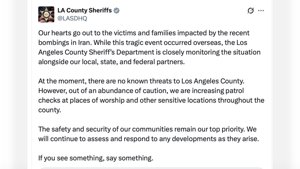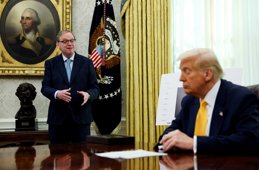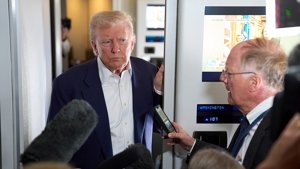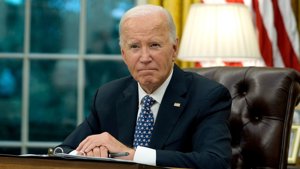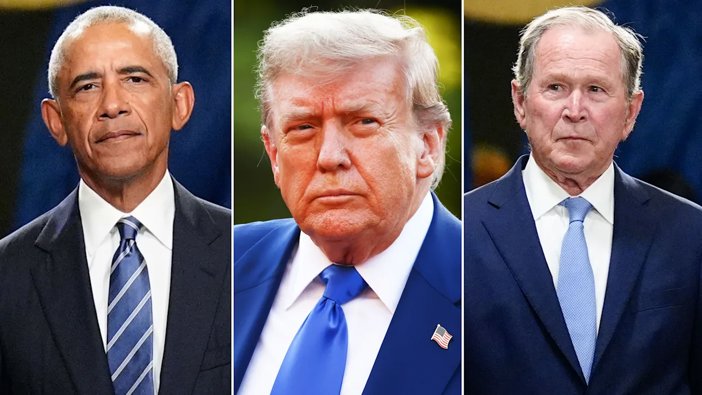
Bush, Obama Criticize Trump Over USAID Closure
Bush and Obama join Bono to criticize Trump for shuttering USAID, citing global impact and loss of American humanitarian leadership.
Bipartisan Outcry Over USAID’s Closure
Former Presidents George W. Bush and Barack Obama united this week to express deep regret over President Donald Trump’s decision to shutter the United States Agency for International Development (USAID), marking a rare moment of bipartisan agreement on American foreign policy. Their comments, delivered via video call to departing USAID employees, underscored a growing backlash against the administration’s move to dissolve the agency after reports of alleged corruption and mismanagement.
“Gutting USAID is a travesty, and it’s a tragedy,” Obama told staffers, labeling the shutdown “a colossal mistake.” He added, “Sooner or later, leaders on both sides of the aisle will realize how much you are needed.” The agency, founded under the Kennedy administration, has long been tasked with administering economic aid and development assistance to countries around the world. In his message, Bush lamented the end of USAID’s role in his own administration’s HIV/AIDS program, which he credited with saving 25 million lives. “You’ve showed the great strength of America through your work — and that is your good heart,’’ Bush said, arguing that this humanitarian leadership is in America’s national interest.
Artists, Politicians, and Diplomats Voice Support for USAID
The outpouring of support extended beyond the political arena. U2 singer Bono, long an advocate for international aid, recited a poem for the departing employees, mourning the agency’s demise and warning that “millions around the world will likely now die.” Hillary Clinton, former Secretary of State, echoed this sentiment, praising foreign service and development professionals for saving lives and making the world safer. “Today, and every day, I stand with them,” she wrote on social media.
Despite largely refraining from publicly rebuking Trump in the past, Bush and Obama both chose to speak out as USAID was officially dissolved and absorbed by the State Department. Their recorded remarks, reviewed by the Associated Press, were not open to the media but later released as the closure became official. Bono, a frequent critic of the Trump administration, warned that dismantling USAID could cost hundreds of thousands of lives globally.
Trump Administration’s Rationale and Policy Shift
The Trump administration justified the closure by citing widespread allegations of fraud and inefficiency. USAID became a primary target of the Department of Government Efficiency (DOGE), led by Elon Musk, who characterized the agency as a “viper’s nest of radical-left marxists.” In a public statement, Secretary of State Marco Rubio, who was serving as acting USAID administrator, announced that all foreign assistance would now be managed by the State Department. He argued that USAID had failed to meet its development goals, worsened instability, and fueled anti-American sentiment, calling the reform a necessary end to “government-sanctioned inefficiency.”
President Trump has repeatedly cited DOGE’s findings of $22 billion in government “waste” across various agencies, highlighting examples from USAID programs during a recent address to Congress. “Forty-five million dollars for diversity, equity and inclusion scholarships in Burma,” Trump said. “Eight million to promote LGBTQI+ in the African nation of Lesotho… Sixty million dollars for indigenous peoples and Afro-Colombian empowerment in Central America.”
The transfer of USAID’s programs to the State Department is framed as a bid to ensure future aid aligns more closely with American national interests and operates under stricter oversight and efficiency standards.
Debate Over the Future of U.S. Foreign Assistance
The abrupt shutdown has sparked debate over the future of U.S. foreign aid and its role on the world stage. While critics see the move as a retreat from American leadership and humanitarian commitments, supporters argue it will end bureaucratic excess and refocus aid on national priorities. As the dust settles, the lasting effects on vulnerable populations and America’s global reputation remain to be seen.

